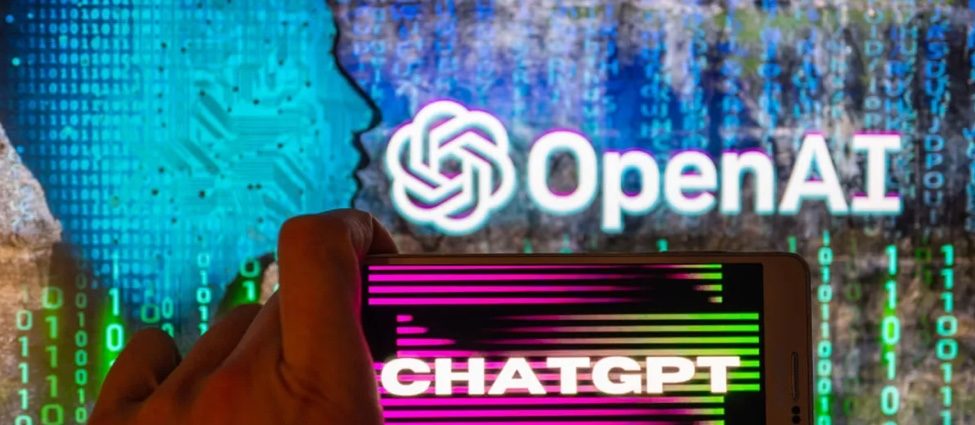ChatGPT
Remember Bing? With ChatGPT’s Help, Microsoft Is Coming for Google Search
The future of search is conversational, if ChatGPT’s viral success is anything to go by.
Have you ever found yourself trawling through endless pages of results on a search engine to find the answer to a complex question? Say you want to find out if a vegetarian diet is suitable for your dog. Your research journey might begin by hopping onto Google and typing “is a veg diet good for dogs” into the search box and then having to make sense of the legion of generated links. By the time you find an answer, you’ve sunk way more time than you’d budgeted into poring through articles, reports and their sources.
In the not-so-distant future, finding the answer to a complex question might not be such a tedious process. Microsoft is reportedly integrating a more advanced version (GPT-4) of the AI tech that underlies the headline-grabbing ChatGPT into its Bing search engine in a move that could transform search as we know it. More specifically, Bing might have the potential to serve up a search experience that’s superior to Google, according to AI researchers, and potentially usurp the search giant’s decades-long dominance.
“ChatGPT is the first new technology in more than a decade that may really transform search and that could, at least in principle, upend Google’s market dominance,” said Anton Korinek, an AI researcher and professor of economics, at the University of Virginia. “What the technology does is that it allows consumers to interact with their computer in a much more natural and conversational form than traditional search.”
At this point, we don’t know what Bing’s AI-driven search results might look like exactly (although some people have seen the new version of Bing appear briefly before vanishing). Microsoft declined to comment for this story. However, AI researchers expect a meaningful departure from the status quo in terms of how a search engine presents an answer and how users interact with it. After all, ChatGPT is not designed to browse the internet for information (like a search engine). Instead, the chatbot uses information studied from vast swaths of training data to generate a response.
“ChatGPT can answer its users with a single clear response compared to the myriads of links of traditional search engines. It also has capabilities that are far beyond traditional search engines, like [the ability] to generate new text, explain concepts, have a back-and-forth conversation between the user and the system, and so on,” said Korinek. “People still find emergent capabilities that even the creators of ChatGPT were not aware that the system had.”
Microsoft announced plans in January to invest more resources into OpenAI, the creator of ChatGPT, to the tune of $10 billion. The deal would help keep both companies at the cutting edge of what’s known as generative AI, a tech used in ChatGPT that can learn from copious amounts of data to create virtually any content format (text, images, music and so on) simply from a text prompt.
Search is just one in a suite of consumer-facing products in Microsoft’s stable that could potentially change meaningfully for customers in the coming years. According to a report by The Information, the Seattle-based tech giant also has plans to integrate ChatGPT’s AI tech into long-established products like Word, PowerPoint and Outlook in an endeavor that could change how more than a billion people work and accomplish daily tasks. For instance, integrating it into Outlook could mean simply prompting the email application to write a message about a specific topic.
“Microsoft will deploy OpenAI’s models across our consumer and enterprise products and introduce new categories of digital experiences built on OpenAI’s technology,” the company said in a press release announcing the expanded partnership.
Conversational search
For its part, Google and its cutting-edge subunit DeepMind have been working on similar systems for years. In fact, Google pioneered the AI technology known as a transformer that’s used in ChatGPT, GPT-3 and GPT-2. The search giant chose not to release them to the public, though, in part over concerns about unethical behavior and how chat systems sometimes break social norms.
However, in the wake of ChatGPT’s viral success, Google says it’s gearing up to release its challenger to ChatGPT imminently.
“In the coming weeks and months, we’ll make these language models available, starting with LaMDA, so that people can engage directly with them,” CEO Sundar Pichai said on a call detailing Alphabet’s fourth-quarter financial results in early February.
Google will focus on responsible AI, Pichai said, an important point given the problems with bias and wrong answers the technology can produce, among others. For instance, in 2016 Microsoft created a chatbot called Tay that it was forced to take offline after it spewed out hate speech. Even ChatGPT, which has rules to create positive and friendly content, can be manipulated into producing upsetting responses using the right prompts.
Google has also recently invested $300 million dollars into ChatGPT rival Anthropic, according to a Financial Times report.
“A competing system that is currently conducting beta tests is Anthropic’s Claude, which (or perhaps I should say who) has a very different personality from ChatGPT and is really a pleasure to interact with — it is so refined, cultured and polite,” said Korinek.
It’s no secret that Google search has become more conversational in general over the years. The company has made progress in this area with the Google assistant and with knowledge panels in search, and for years has pitched conversation as the future of search, demoing its AI systems LaMDA and MUM at its 2021 I/O developer conference.
Leveraging OpenAI’s artificial intelligence seems to be how Microsoft is attempting to edge out Google at its own game. In the wake of ChatGPT’s release, Google management issued a “code red,” according to The New York Times. The report said internal teams had been reassigned to kickstart work on AI between now and an expected company conference in May.
Still, Google’s search engine today remains the undisputed market leader as it has for decades, commanding 84% of global search market share, compared to Bing’s 9% (although it has grown in recent years) in 2022, according to Statista.
Google declined to comment for this story.
A cardboard craft-style open laptop with a chatty robot on the screen.
How smart is ChatGPT?
As you’ve probably heard by now, ChatGPT is a sophisticated chatbot that went viral globally after its consumer release in late November as a free online tool accessible to anyone with an internet connection. The AI-powered chatbot made headlines thanks in part to its ability to churn out delightful poetry, generate meal plans and provide authoritative answers to complex questions within seconds after being prompted. The tech underlying it isn’t exactly brand new, but no chatbot had yet managed to capture mainstream fascination in the way that ChatGPT did. That’s largely because OpenAI built a snazzy user experience around the GPT-3.5 language model, and that’s the phenomenon we know as ChatGPT.
GPT-3.5 is an improved version of GPT-3, which debuted in 2020 and which learned from vast tracts of data and code to help it achieve its abilities. According to researchers at Stanford University, GPT-3 was trained on 570 gigabytes of text and has 175 billion parameters. (Google’s Dale Markowitz, meanwhile, put it at 45 terabytes of text data, “including almost all of the public web.”) For comparison, its predecessor, GPT-2, was over 100 times smaller, at 1.5 billion parameters.
“This increase in scale drastically changes the behavior of the model — GPT-3 is able to perform tasks it was not explicitly trained on, like translating sentences from English to French, with few to no training examples. This behavior was mostly absent in GPT-2,” researchers from Stanford’s Institute for Human-Centered Artificial Intelligence wrote in a 2021 post.
“The current version of ChatGPT probably already knows more about the world than any individual human, and it can present that knowledge in digestible form,” said Korinek.
For all the promise ChatGPT holds, there are nearly as many limitations. Critics of ChatGPT say it’s not always clear where the chatbot is pulling information from, which can make it difficult for people to trust the results. Skeptics also point out that ChatGPT will always remain undermined by the imperfect nature of the data it was trained on, including biased information or misinformation.
OpenAI has acknowledged the chatbot’s weaknesses in its current form. CEO Sam Altman said in a December post on Twitter that the product struggles with “robustness and truthfulness” and that it would be “a mistake to be relying on it for anything important right now.”
But don’t look for the AI bandwagon to slow down.
“There will be a number of new systems like ChatGPT that will enter the market in 2023, and the main implication of the resulting competition is that consumers will have more choice and, hopefully, better products for consumers,” added Korinek.
GPT-4, which is under development, is reported to have 100 trillion parameters. But a release is not expected to take place until OpenAI is “confident we can [release] it safely and responsibly,” Altman said in an interview with StrictlyVC in early January.
Altman also attempted to manage expectations of that fourth iteration of GPT, the sophisticated language model that underpins ChatGPT, saying “we don’t have AGI.” AGI stands for artificial general intelligence, or a technology with its own emergent intelligence as opposed to relying on the deep learning models currently used by OpenAI. It’s the kind of intelligence that has been dramatized in science fiction stories for more than a century and was popularized in recent years by the award-winning dystopian show Westworld.
“I think [AGI] is sort of what is expected of us,” Altman said in the same interview, adding that GPT-4 is “going to disappoint” people who hold out that hope.
Editors’ note: CNET is using an AI engine to create some personal finance explainers that are edited and fact-checked by our editors. For more, see this post.
First published on Jan. 29, 2023 at 5:00 a.m. PT.
You’ll Be Seeing ChatGPT’s Influence Everywhere This Year
The popular chatbot could pave the way for next-generation office apps, search engines and more.
A cardboard craft-style open laptop with a chatty robot on the screen.
Chatbots just got a lot more complex with OpenAI’s ChatGPT tool.
Carol Yepes/Getty Images
Chatbots have existed in some way since as far back as the 1960s. But there’s something about ChatGPT that’s beguiled investors, tech companies and the general public since its arrival late last year.
The internet already abounds with ideas for how to put ChatGPT’s human-like dialogue to use, from creating custom chatbots to help fight traffic tickets to creating workout and diet plans.
The bigger question, however, is whether ChatGPT (or more accurately, the tech that powers it) will have the same sweeping influence as other breakthrough technologies of our generation, like the iPhone, Google search and Amazon Alexa.
It’ll likely be years before we have an answer to that question. But in 2023, artificial intelligence experts expect to see a wave of new products, apps and services powered by the tech behind ChatGPT. It could change the way we interact with customer service chatbots, voice-enabled virtual assistants like Alexa or Siri, search engines and even your email inbox.
“I would say, within six months or so, we’re going to see a huge step-up in the conversational capabilities of chatbots and voice assistants,” said Oren Etzioni, adviser and board member of the Allen Institute for Artificial Intelligence.
ChatGPT’s potential impact on the way we work is already dominating headlines in 2023. Greg Brockman, president and co-founder of OpenAI, said in a Jan. 10 tweet that a professional paid version of ChatGPT with faster performance is in the works. Microsoft, an investor in ChatGPT’s creator OpenAI, is reportedly looking to incorporate the tech into Bing, Outlook, Word and PowerPoint, according to reports from The Information. The New York City Department of Education has blocked access to ChatGPT on school devices over “concerns about negative impacts on student learning.” And OpenAI is discussing a tender offer that would value the company at about $29 billion, potentially making it one of the most valuable US startups, according to The Wall Street Journal.
“There’s a hype cycle to things, and obviously this has captured the imagination right now,” said Michael Chui, a partner at the McKinsey Global Institute. “But behind a hype cycle often [are] advancements that eventually get embedded into real use cases in business. And that has already begun.”
ChatGPT: What it is and how it works
ChatGPT is a free chatbot that’s available online as a research preview, which OpenAI says will allow the system to learn from real-world use. You can ask ChatGPT straightforward queries like “Show me healthy dinner ideas” or “What’s the best way to answer the ‘tell me about yourself’ question in a job interview?” But ChatGPT can also do things like write poems, songs and essays. You can ask it to compose a holiday greeting card, organize your to-do list and even draft a resignation letter.
The AI is trained on large volumes of data from the internet written by humans, including conversations. But ChatGPT isn’t connected to the internet, so it sometimes produces incorrect answers and has limited knowledge.
ChatGPT’s surprisingly humanlike prose and confidence when answering questions have made it an overnight hit. The software crossed 1 million users in its first five days, Brockman said on Twitter in early December.
“They do things that many of us would react [with] ‘Oh those are the kinds of things that we expect people to do,'” said Chui in reference to ChatGPT and other programs that use similar AI methods to generate artwork, like OpenAI’s Dall-E.
Better chatbots and more helpful office tools
There are plenty of one-off examples of how ChatGPT is already being used to help with everyday tasks like creating grocery lists and bedtime stories, as my colleague David Lumb wrote in December. What’s less clear is how and if the tech powering ChatGPT will play a broader role in the apps and services we use every day. The chatbot industry is one of the biggest areas experts are predicting will see an impact, particularly when it comes to customer service agents.
Ada, a company that offers AI-powered customer service tools to businesses like Meta, Square and Verizon, already uses GPT-3, a version of the language model that powers ChatGPT. On Dec. 20, Ada announced that it will deepen the use of OpenAI’s technology in its products.
In the future, everyday voicebots like Alexa and Siri may benefit from the technology, too.
“You don’t need to run ChatGPT just to say ‘Set my alarm for 5 p.m.,'” said Etzioni. “But the future of these voice assistants is definitely to have much more powerful conversational abilities.”
Microsoft’s Clippy mascot
Forget Clippy. Microsoft may be working on a much better office assistant, according to The Information.
Microsoft
Another promising role for ChatGPT is as a next-generation office assistant. Experts see potential in the technology for everything from helping to write code, draft emails and assemble job descriptions. Companies like Jasper and Unbounce already offer AI-powered copywriting tools that use GPT-3 for generating taglines, social media copy, emails and product descriptions.
Microsoft reportedly wants to incorporate the AI model behind ChatGPT into Outlook so that it can fetch accurate search results from your inbox even if you don’t type the correct keywords, according to The Information. The company has also reportedly discussed using OpenAI’s software to create chatbots inside Word and Outlook that could write content after being fed a prompt, the report says.
Microsoft has also been exploring how AI can speed up the code writing process with a product called Github Copilot, which can suggest individual lines of code and whole functions using an AI model from Open AI called OpenAI Codex.
“I think in the domain of code, ChatGPT will also be potentially a game changer,” said Yoon Kim, a professor at the Massachusetts Institute of Technology. Asking a chatbot to fix a coding error would be much easier than Googling a question and searching for similar answers, which Kim says is typically the process most coders go through when encountering an issue.
More conversational search results
ChatGPT’s ability to surface information in a conversational way has sparked comparisons to search, leading some to question whether similar tools will eventually supplant Google. Even after spending just a few minutes using ChatGPT, it’s easy to understand why. Similar to a search engine, ChatGPT can answer questions like “How do I get rid of fruit flies?” and “Which family is most powerful in Game of Thrones?” Instead of serving up a selection of article snippets and links, ChatGPT provides a simple answer, complete with steps as shown below.
A screenshot of a response from ChatGPT to a question about how to get rid of fruit flies
ChatGPT can provide conversational answers to questions, but its knowledge is limited to the data it’s been trained on.
Screenshot via Lisa Eadicicco/CNET
ChatGPT may accomplish some similar tasks as a search engine, but it’s much more limited in its current form since it can’t crawl the web for answers. So if you ask it a question like “What are the best movies on Netflix right now?” you’ll get an answer like the one below.
But that doesn’t mean tech giants aren’t thinking about how to incorporate it into search engines. Microsoft is preparing to launch a version of Bing that uses the AI behind ChatGPT to help deliver more conversational answers to some search queries, reports The Information. The feature could arrive before the end of March. Since ChatGPT can’t browse the web, it would likely be used to improve the way search results are presented to users, according to the report.
You.com, a search engine that launched in 2021, also began offering a ChatGPT-like chatbot on its website in late 2022.
Google management issued a “code red” in response to ChatGPT’s release, according to The New York Times. Teams within the company have been reassigned to work on AI tools between now and the company’s expected conference in May, says the report. Google also has its own language model called LaMDA, which made headlines this summer when former engineer Blake Lemoine publicly voiced concerns about the technology achieving sentience. (In a statement to The Washington Post, Google said there was no evidence to support Lemoine’s claims.)
“Eventually the hard questions are going to come up. And some of those hard questions are going to be around, how are you able to tell when it’s telling the truth?”
Jennifer King, privacy and data policy fellow at Stanford’s Institute for Human-Centered Artificial Intelligence
ChatGPT’s colloquial nature is also similar to the approach Google has taken with its search engine and voice assistant. What started as a list of blue links has evolved into a tapestry of information panels, snippets and image carousels meant to answer questions directly before users even tap a link. It’s easy to see how serving up conversational answers to queries just like ChatGPT does would make Google’s search results even more efficient. As the Google Assistant has become more conversational, it’s learned new tasks over the past four years, like the ability to wait on hold and book restaurant reservations on your behalf.
But it’ll likely be a long time before a chatbot like ChatGPT can provide results that are as accurate and trustworthy as Google’s. What we’re more likely to see is some type of hybrid system that combines traditional search results with the conversational presentation of ChatGPT, according to Kim, the MIT professor.
“It can craft a fluid natural language answer using the results from the search engine, but also display the sources that it used to craft the answer,” said Kim. That sounds similar to the Bing features Microsoft is said to be working on.
Concerns about ChatGPT’s limitations and accuracy
But for all the potential that ChatGPT holds, there are almost just as many concerns, the biggest of which centers on the fact that ChatGPT isn’t always correct. OpenAI has been upfront about ChatGPT’s shortcomings, saying on its website that ChatGPT sometimes “writes plausible-sounding but incorrect or nonsensical answers.” OpenAI also cautions that ChatGPT has limited knowledge of events after 2021 and should not be used for advice. Stack Overflow, the question and answer site for programmers, temporarily banned answers written by ChatGPT and GPT because the rate of getting a correct answer was too low.
“Eventually the hard questions are going to come up,” said Jennifer King, privacy and data policy fellow at Stanford’s Institute for Human-Centered Artificial Intelligence. “And some of those hard questions are going to be around, how are you able to tell when it’s telling the truth?”
There’s also the issue of people using the technology in nefarious ways. The New York City Department of Education restricted access to ChatGPT on school devices amid concerns over cheating. OpenAI’s technology is already being used by hackers to develop malicious tools, according to security software provider Check Point Research.
“I guess it’s a question of how risky companies see a tool like this, and whether they think that that risk can be constrained,” King said when asked about how quickly companies will incorporate tools like ChatGPT into their products.
ChatGPT may be good at crafting answers, but its rapid rise has only resulted in more questions. What will happen when the research preview is over? How will OpenAI and other companies that use the technology address the concerns mentioned above? Is this an iPhone moment for conversational AI? The answers will come in time — and sooner rather than later.
“We are already seeing a number of new apps,” said Etzioni. “But really within six months as opposed to five years or three years, we’re going to see a lot more.”
Editors’ note: CNET is using an AI engine to create some personal finance explainers that are edited and fact-checked by our editors. For more, see this post.




